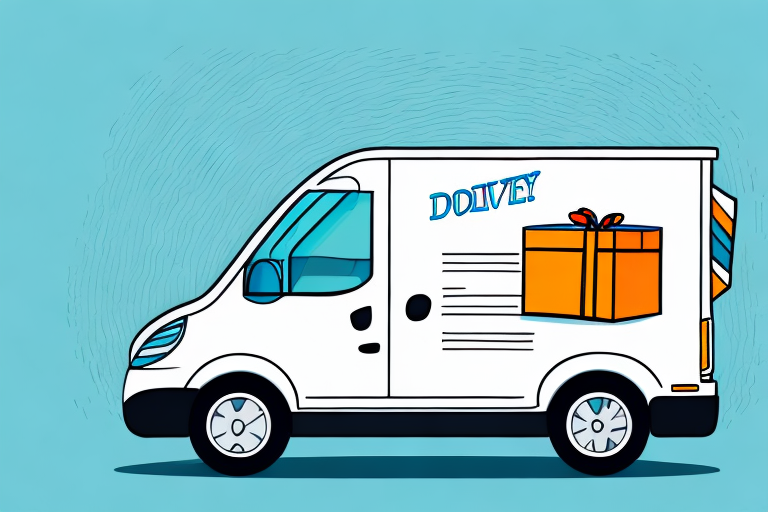Introduction to Working as a Delivery Service Employee
The delivery industry has experienced significant growth in recent years, largely driven by the surge in online shopping. This expansion has created a high demand for delivery service employees, offering a variety of opportunities for those considering a career in this dynamic field. In this article, we will delve into the benefits of working as a delivery service employee, exploring job security, financial incentives, career advancement opportunities, and the essential skills required for success.
Growth and Trends in the Delivery Industry
E-commerce Explosion
The rapid rise of e-commerce has been a primary catalyst for the growth of the delivery industry. According to Statista, global e-commerce sales surpassed $5 trillion in 2022 and are projected to continue increasing. This surge has necessitated an expanded and more efficient delivery infrastructure to meet consumer demand.
Demand for Rapid Delivery
Consumers increasingly expect faster delivery times, with same-day and next-day deliveries becoming standard offerings. A PwC report highlights that approximately 58% of consumers are likely to abandon an online purchase if the delivery timescale is too long, emphasizing the importance of speed in delivery services.
Sustainability Initiatives
Environmental sustainability has become a significant focus within the delivery industry. Companies are investing in electric vehicles, optimizing delivery routes to reduce fuel consumption, and using eco-friendly packaging materials. These initiatives not only help the environment but also appeal to eco-conscious consumers, as reported by the McKinsey & Company.
Roles and Responsibilities of Delivery Service Employees
Package Delivery and Customer Service
Delivery service employees are responsible for ensuring that packages reach customers promptly and in good condition. This involves efficient handling of packages, timely deliveries, and providing excellent customer service to address any issues or inquiries.
Product Knowledge and Special Handling
Employees must be knowledgeable about the products they deliver, including any special handling requirements such as temperature control for perishable items. This expertise ensures that sensitive goods are transported safely and meet quality standards.
Navigation and Route Optimization
Effective navigation is crucial for timely deliveries. Delivery service employees often use GPS technology and route optimization software to determine the most efficient paths, reducing travel time and fuel costs. According to a Forbes article, advanced route optimization can decrease delivery times by up to 30%.
Benefits of Working in the Delivery Industry
Job Security and Stability
The consistent growth of the delivery sector provides strong job security and stability. Unlike some industries that are highly susceptible to economic fluctuations, the demand for delivery services remains robust, ensuring a steady stream of employment opportunities.
Financial Benefits: Salary, Tips, and Incentives
Delivery service employees often receive competitive salaries along with additional financial incentives such as tips and performance-based bonuses. For instance, according to the U.S. Bureau of Labor Statistics, the median annual wage for delivery drivers was approximately $35,000 in 2022, with potential earnings increasing based on location and experience.
Health and Fitness Advantages
The physical nature of delivery jobs promotes physical fitness, as employees engage in activities like lifting, walking, and driving. Additionally, maintaining an active lifestyle can contribute to overall well-being and reduce the risk of sedentary-related health issues.
Opportunities for Career Advancement
Supervisory Roles and Management
Delivery service employees have pathways to advance into supervisory and managerial positions. These roles involve overseeing teams, managing logistics operations, and contributing to strategic planning, providing opportunities for professional growth and increased responsibility.
Emerging Technologies
With the integration of autonomous vehicles and drone deliveries, there is a growing demand for professionals skilled in managing and operating these technologies. Employees who adapt to and master these advancements can position themselves at the forefront of the industry.
International Logistics
As businesses expand globally, expertise in international logistics becomes increasingly valuable. Professionals who can navigate complex supply chains and international regulations are sought after, offering higher salaries and diverse job opportunities.
Essential Skills and Technologies in the Delivery Industry
Communication Skills
Effective communication is vital for interacting with customers, addressing concerns, and coordinating with team members. Strong verbal and written communication skills enhance customer satisfaction and operational efficiency.
Navigation Technologies
Proficiency in using GPS and route optimization software is essential for efficient deliveries. Familiarity with these technologies helps employees plan the best routes, avoid traffic delays, and ensure timely deliveries.
Time Management and Organization
Delivery service employees must manage their time effectively to meet delivery schedules. Strong organizational skills enable them to prioritize tasks, handle multiple deliveries efficiently, and adapt to unexpected changes.
Challenges and Future Outlook
Workplace Challenges
Delivery service employees often face challenges such as inclement weather, traffic congestion, and navigating unfamiliar areas. Additionally, the physical demands of the job can lead to fatigue and stress.
Impact of Technology
While technology has streamlined many aspects of delivery services, it also requires employees to continuously learn and adapt to new tools and systems. The integration of automation and AI presents both opportunities and challenges in the workforce.
Future Trends and Predictions
The delivery industry is poised for continued growth, with trends such as increased automation, sustainable delivery practices, and the expansion of international logistics. Innovations like drone deliveries and smart warehouses are expected to revolutionize the sector, creating new opportunities and shaping the future landscape of delivery services.
Conclusion
Working as a delivery service employee offers numerous advantages, including job security, competitive financial benefits, and opportunities for career advancement. Despite the inherent challenges, the role requires a specific set of skills that contribute to personal and professional growth. As the delivery industry continues to evolve with technological advancements and changing consumer demands, it remains a promising field for those seeking a stable and dynamic career path.




















